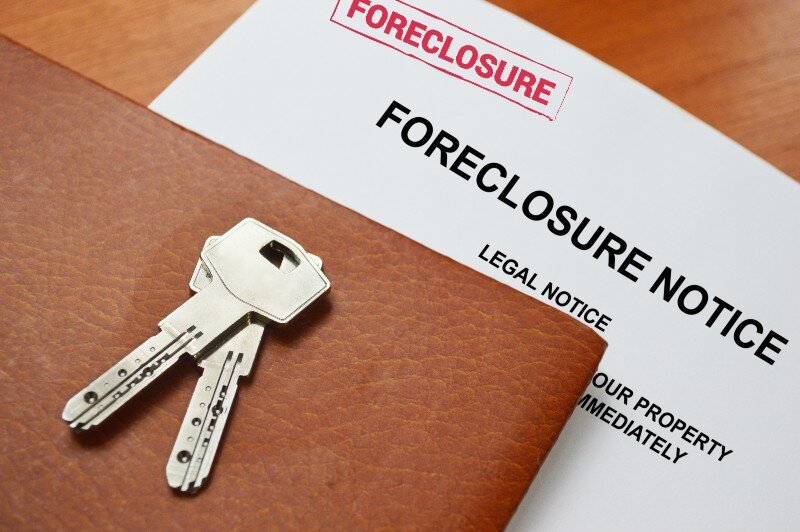
Making monthly mortgage payments can be difficult. When financial situations change for the worse, and things aren’t getting better, what was one or two missed payments can quickly lead to pre-foreclosure. If you’re facing foreclosure on your house, it’s important to understand that you have options and don’t have to lose your home. And, if selling your home becomes the best route, you may be able to walk away with some of the proceeds.
If you’ve been searching online for “what can I do to save my house from foreclosure?” keep reading as we outline the many routes you can take when facing foreclosure. We give you the pros and cons of each and discuss who they’re best suited for. By the time you’re done reading, you’ll have a good idea of how to save your house from foreclosure.
What Can I Do To Save My House From Foreclosure?
Saving your house from foreclosure isn’t always easy, but several options exist.
Pay Back Your Lender
The first and most straightforward route is to pay back your missed payments in a lump sum, allowing your original mortgage to be reinstated.
Of course, most people facing foreclosure don’t have the spare cash to do this— that’s why they’re facing foreclosure, to begin with! So, though it’s the simplest solution, paying off your debt in one fell swoop isn’t feasible for most people.
Loan Modification or Forbearance
In some cases, such as a sudden unfavorable financial situation, you can negotiate a loan modification or forbearance with your lender.
With a loan modification, you’ll renegotiate your existing mortgage so that you have payments you can afford. Then, when things get better financially, your repayment plan may include paying a prorated amount of arrears along with your monthly payments to make up the debt.
Loan modifications aren’t the same as refinancing your loan. Since you aren’t initiating a new loan agreement, there are no new closing costs or initiation fees.
With a loan forbearance, the lender can temporarily lower or suspend mortgage payments entirely because of a short-term financial issue. If you had a sudden drop in income or are facing a medical emergency but otherwise have a good credit history, your lender might be open to these options.
Short Sales and Deeds in Lieu of Foreclosure
Other common ways to prevent foreclosure include short sales and offering the deed in lieu of foreclosure.
A short sale means the homeowner sells the house for less than they owe. Typically, short sales allow for a quick sale, but you could still walk away owing money to the bank. Of course, as most homeowners facing foreclosure are not in a good financial situation, that isn’t ideal.
Offering the deed in lieu of foreclosure means you’ll give your home to your lender to make up for the missed payments. That will save your credit score, but you come away without a home and any equity you had in it. Plus, you can only use this method if an attempt to sell your home fails.
Talk to a Housing Counselor
Speaking with a HUD-approved counseling agency may help you weigh your options when trying to avoid a possible foreclosure. The U.S. Department of Housing and Urban Development provides a list of low-cost and no-cost housing counseling agencies.
While this may help you think through the decision, it will not stop lenders from calling, nor does it stall the foreclosure process. However, It is a good intermediary step to consider before committing to a specific course of action.
As you can see, most of the above options only apply in certain situations or only apply a band-aid to the problem. Below, we outline a few alternatives to the question “what can I do to save my house from foreclosure?” that are more likely to help you stop foreclosure. Many of them could save your home or at least put some money back in your pocket.
Option 1: Filing For Bankruptcy
Bankruptcy is a legal proceeding during which a court trustee and judge review all your assets and liabilities. Then, they determine whether or not to discharge your debts.
The second the borrower files for bankruptcy, the judge will put an automatic stay on the foreclosure proceedings. So, filing for bankruptcy buys time, but that’s probably all it will do.
With chapter 7 bankruptcy, which is the most common, you’ll still have to sell your property to repay your debt.
If that isn’t something you want to consider, filing for chapter 13 bankruptcy may be an option. Keep in mind that it’s only viable if your debts don’t exceed a certain amount. With chapter 13 filings, you get to keep your home and repay creditors using a three to five-year repayment plan.
Regardless, filing for bankruptcy will wreck your credit. You’ll only qualify for high-interest rate loans in years to come, making a future home purchase more difficult.
And filing for bankruptcy isn’t cost-free. There are filing fees, and you may need to hire a bankruptcy attorney. So, while it may give you breathing room if multiple creditors are on your case, it may not be the best choice for foreclosure prevention.
Option 2: Selling Your House For Cash
One of the better options for saving your house from foreclosure is to sell your house for cash.
Selling a home to pay off debt has significant advantages. Namely, you can pay off your mortgage loan with the proceeds and then pocket any remaining cash. That keeps a foreclosure from hitting your credit score and may provide you with extra income.
If you need to sell a house fast in Idaho, we can help. We buy houses Boise residents can expect to be moved on fast, regardless of their condition.
Our house-purchasing process is fast and direct, allowing you to sell your property and pay off your debt without worrying about real estate agent fees. We’re familiar with the foreclosure process in ID and can help you sell your home before your mortgage lender continues with foreclosure proceedings.
Option 3: Refinancing Your Mortgage
Another avenue to consider is refinancing. There are a few ways to do this.
You can speak with your mortgage servicer and negotiate a new loan with the same mortgage company. There will be new closing costs and fees, but you’ll stop the foreclosure process.
Unfortunately, if you have several past due payments, your loan servicer may decide you’re high risk and refuse to refinance your agreement. In this case, you can reach out to a new lender. However, the new loan provider will likely require a higher interest rate.
Refinancing your mortgage is easier if you do it sooner rather than later. If you’re only delinquent on your mortgage payments, your loan provider will likely work with you on a refinancing agreement. Once they send you a notice of default and your house is in pre-foreclosure, they’re less likely to offer refinancing.
Also, if you’re considering refinancing, watch out for scams. Many companies claim that they help stop foreclosures, offer loan modifications, or provide mortgage relief when, in fact, they’ll take your money and vanish.
So, you have to do your homework when searching for a reputable refinancing company. And, if they’re making promises that seem too good to be true, they’re probably not the type of company you should give your money to.

Can You Always Save Your House In Foreclosure?
If your house is in foreclosure, there are always options you can pursue. However, not all of them result in saving your home. Often, the best is to pursue a home sale, even if it’s a short sale. That way, you avoid the hit on your credit report.
In some cases, you may even walk away with some money in your pocket. Selling your home for cash is an effective way to avoid foreclosure, retain your credit score, and maybe end up with a little bit of income.
Trying to keep your home at all costs could lead you to seek refinancing with a less-than-reputable company that offers an astronomical interest rate.
Or, it may lead you to file for chapter 13 bankruptcy. Doing so could ruin your credit. What’s more, if you don’t repay your debt the way your payment plan states you will, you’ll be back where you started.
Many people who file for chapter 13 bankruptcy fail to meet their repayment plan requirements and end up filing for chapter 7 bankruptcy later on. In other words, they ultimately lose their property anyway. So, even if there is the potential to save your house, it may be better to let it go.
Conclusion
Saving your house from foreclosure can seem daunting. It may involve lengthy renegotiations and lots of paperwork. If you choose to file for bankruptcy, it can also involve time in court and further fees.
When considering something like “what can I do to save my house from foreclosure?” one of the best methods is to consider selling your home. If you’re in Idaho, we have cash home buyers in Meridian and throughout the Treasure Valley area. Our process is straightforward and fast, allowing you to stop the foreclosure process. And depending on how much you owe, you may be able to walk away with a little income.
